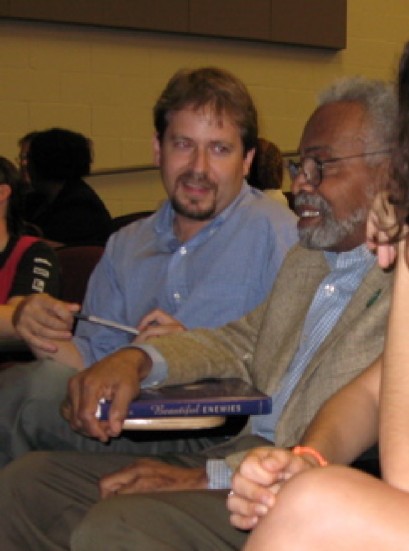Nocturne: Beheaded
Tuesday, May 23, 2023
Saeed Jones
Friday, May 19, 2023
Louise Gluck
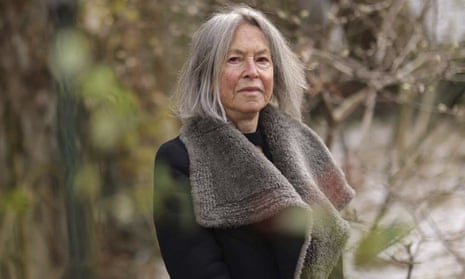
The Red Poppy
Tuesday, May 16, 2023
Aram Saroyan

*
guarantee
*
hghgh
*
noom
*
waht
*
REMIEIMBER
*
FAICE
*
Picassc
*
oxygen
*
gum
*
eights†
Aram Saroyan

from Aram Saroyan (1968):
*
lighght
*
morni,ng
*
Blod
*
’
aren’t
Aram Saroyan

Introduction
In the middle of night
in Brightlingsea
Tom Clark is
sitting here with me.
The time is
for me to write an Introduction
to his book Airplanes.
I do.
It’s 11:35.
Not really “the middle of night”
but allright.
I want to
mention “yellow”
and now
green.
Often these two colors in particular
seem to be combined
in Tom’s poems.
Airplanes.
The “yellow”
and now
green.
11:39
My back is to
Tom and now I’m about to
turn around.
At the last minute
I realize
Tom is reading.
Aram Saroyan
from
Minimal ex-library processing, appears that front wrapper was detached at
Ron Silliman
![Image 1 of 1 for Item #1402 Mohawk [inscribed to Jackson Mac Low]. Ron Silliman.](https://www.trioletrarebooks.com/pictures/medium/1402.jpg?v=1608767548)
You, part I
for Pat Silliman
I
Hard dreams. The moment at which you recognize that your own death lies
in wait somewhere within your body. A lone ship defines the horizon. The
rain is not safe to drink.
In Grozny, in Bihac, the idea of history shudders with each new explosion.
The rose lies unattended, wild thorns at the edge of a mass grave. Between
classes, over strong coffee, young men argue the value of a pronoun.
When this you see, remember. Note in a bottle bobs in a cartoon sea. The
radio operator’s name is Sparks.
Hand outlined in paint on a brick wall. Storm turns playground into a
swamp. Finally we spot the wood duck on the middle lake.
The dashboard of my car like the keyboard of a piano. Toy animals anywhere.
Sun swells in the morning sky.
Man with three pens clipped to the neck of his sweatshirt shuffles from one
table to the next, seeking distance from the cold January air out the coffee
house door, tall Styrofoam cup in one hand, Of Grammatology in the other.
Outside, a dog is tied to any empty bench, bike chained to the No Parking
sign.
Monday, May 15, 2023
Tracy K. Smith
Unrest in Baton Rouge
Sunday, May 14, 2023
Ann Lauterbach

MOTIf
They return to trade
places they come back to play
among wet stones under
the fence along the path, to
fly out from sockets of air.
Not to imagine changes ---
static to movement gray to
dead metallic -- crop
crop into the brightly zoned
animate debris. To look,
to be scolded by a form
on the clock’s deadpan face.
Just below artifice
trillions again arguing for or
molesting the body’s opaque revision.
Ann Lauterbach
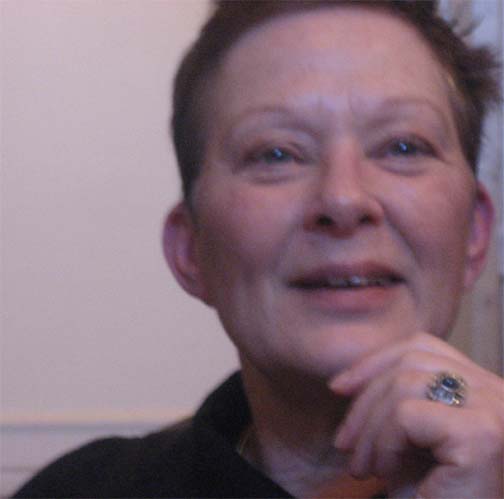
Graffiti
Callow and amorphous, not gods
but adjectives flung at the sun
whose hot fibers protest their distance
lovingly, touching our skulls lovingly.
This is not a desert.
This is a place where a pedestrian stops,
thinking the face in the window is an owl’s.
The face in the window is a Renaissance Youth
eternally snivelling under a green umbrella.
Across the street, it is written drunk doom
in large bold, short-circuiting the stifled
drowsy, unimpassioned grief scrawled in London.
Much of London I don’t recall, although names
sail back to me on small craft, like plunder.
Loss of names is a kind of leakage
but there is another: the actual scale
breezing along in daring episodes,
most of it escaping utterance, falling
back into the temple housing Callow and amorphous
as well as enchanted, and waits for something
to spirit it toward us, away from the unrecovered.
Saturday, May 13, 2023
Ann Lauterbach
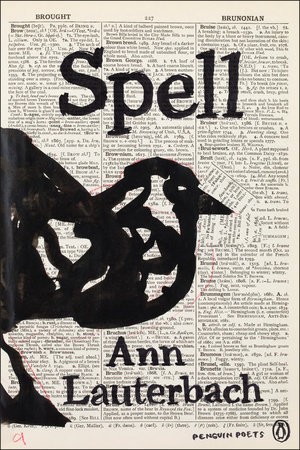
are like the casts of fishing lines
looping and curved briefly across air.
The sky now, also, toward evening, is pale.
On Sunday, in Beacon, there were lines
drawn on walls and also lines
drawn across the canvases of the last paintings
of Agnes Martin. One of them has two pale squares
on a blackened field.
The lines on your walls
follows directions
as if
as if there were a kind of logic
charged with motion
at the end of winter: the pale blue northern cold
almost merged with the pale green
at Hartford, and then the blank newsprint of the sea.
Ann Lauterbach
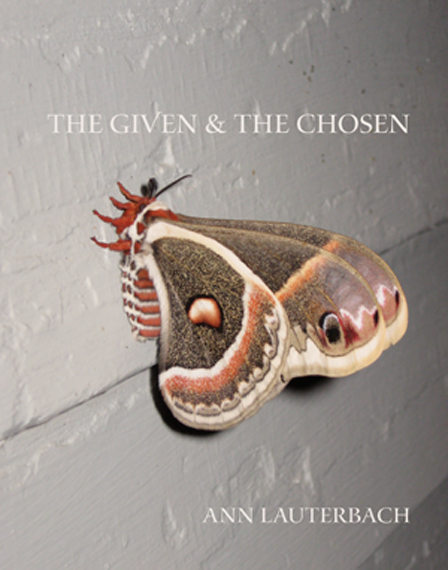
from A C o n t i n u e, or E n t r y
2.
What next? Unique cruelty of the undone.Rook rhymes with book, crow with toe.
Also hook. Also know.
To countermand restlessness, settle on fact
as it seeks to order a well-worn shoe, two
shoes, a pair of old shoes. And yet
the sun lays claim to
natural dyes, rifts through the glow-torn
phenomena where I see
the metonymic rituals of spring
expose a mournful goddess in her crypt.
Hook rhymes with crook, know with foe.
3.
Strange flotation of the stampede, resembling play.
Rumble, blaspheme, crooked under the gun.
Too much is previous. Even the game,
about to start, will vanish
with its partner, day. Reach out your spoon
for another portion; arch your neck.
Everything is in profile toward evening.
If, on behalf of a last chance, you move
Yours sincerely into the winning slot, then
cherries, stars, and the quick weave of your
hair into braids: all this shall be yours.
These are lessons of chance. They are not plans.
5.
Intentional rupture of the flow,
blurry, as in a Vermeer. You, who may
not have seen such reproductions of the same,
missed the optical illusion which,
as it happens, is rhetoric at its best.
He saw how materials collapse
a desire for reality’s articulated shield.
The Dutch love the small, domestic stage.
I love the huge impertinence
of an unresembling fact. Look!
A deep pink developing above, there,
in the west! It cannot be saved.
7.
Kindred plays or blocks, the hallucinating
margin above mementos of—
a supplemental neuter deletes
some revenant’s luck. Her.
I dream the awkward dream. I disallow.
On the rug, with paint and trowel,
under stones and ash and the rude
vocabulary of the frost, grammar
disobeys its rules. The western crawl space.
Air and earth aglitter, collide.
Something adds, something subtracts.
How near is the thing that counts, what is it called?
Catherine Lacey
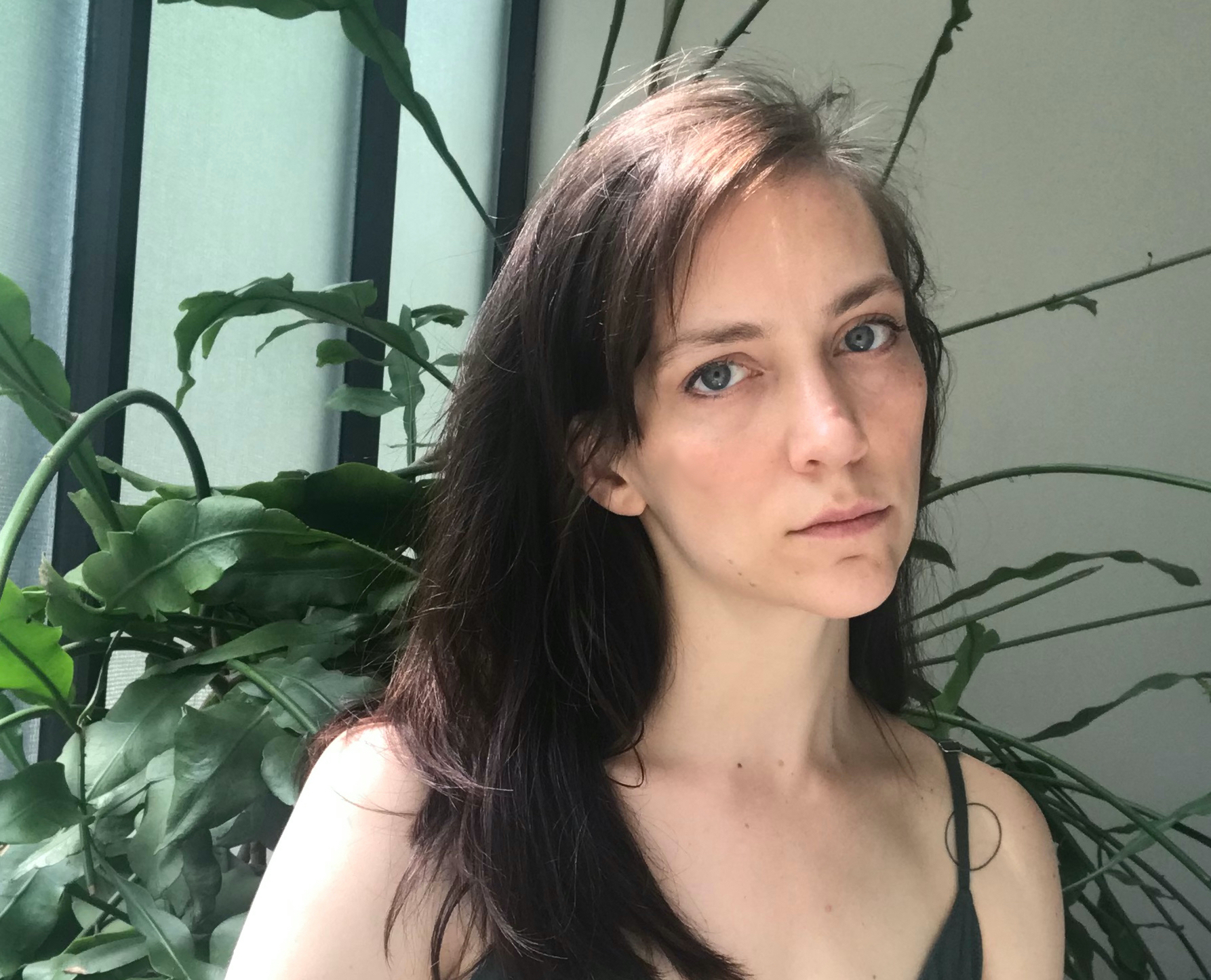
How closely our lives drift past other lives; how narrowly
we become ourselves & not some adjacent other,
someone both near at hand & much too far away.”
— Catherine Lacey, Biography of X
Wednesday, May 10, 2023
Andrew Epstein
from
“Roberto Bolaño and the New York School of Poetry” — on the OUPblog
At the novel’s center is a Chilean university professor named Óscar Amalfitano who falls in love with a
young Mexican artist whose specialty is making forgeries of paintings by … Larry Rivers, of all
people. Rivers, of course, was Frank O’Hara’s close friend, collaborator, and sometime lover, and the
painter who is perhaps most closely allied, both socially and aesthetically, with the New York poets.
This unusual detail — and the figure of Rivers himself — becomes a significant thread in Bolaño’s
novel. The young artist, Castillo, explains that he sells the forgeries to a Texan who “then sells them to
other filthy rich Texans.” When Castillo informs Amalfitano that Rivers is “an artist from New
York,” he replies “I know Larry Rivers. I know Frank O’Hara, so I know Larry Rivers.”
Soon after, as Amalfitano meditates on the strangeness of this situation — the amateurish Rivers’ forgeries, the Texans who buy them, and the art market in New Mexico, Arizona, and Texas — Bolaño writes:
“he immediately pictured those fake Berdies, those fake camels, and those extremely fake Primo Levis (some of the faces undeniably Mexican) in the private salons and galleries, the living rooms and libraries of modestly prosperous citizens… And then he imagined himself strolling around Castillo’s nearly empty studio, naked like Frank O’Hara, a cup of coffee in his right hand and a whiskey in his left, his heart untroubled, at peace with himself, moving trustingly into the arms of his new lover” (58).
Near the end of the book, the Rivers plot culminates with a strange and funny anecdote about running into Larry Rivers himself at an exhibition of his work.
The novel also features an amusing collection of Amalfitano’s “Notes for a Class in Contemporary Literature: The Role of the Poet.” This takes the form of an almost Buzzfeed-ready list that consists of items like “Happiest: Garcia Lorca,” “Banker of the soul: T.S. Eliot,” and “Strangest wrinkles: Auden.” Among other names cited in this rather crazy, irreverent list, one finds several important figures of the New York School – Frank O’Hara, Ted Berrigan, and Diane Di Prima — getting top honors in some strange categories: “Biggest cock: Frank O’Hara,” “Best movie companion: Elizabeth Bishop, Berrigan, Ted Hughes, José Emilio Pacheco,” and under “Biggest nervous wreck: Diane Di Prima”.
Ellen Hinsey

The Multitude
Standing at the edge is the great Multitude.
They inch forward in their rags and hunger.
Their movement along the ground lifts
the sound of ancestral migrations.
They are carrying the dark water of need
in their eyes; they are carrying the first
vowels, the first consonants,
But their mouths are silent, and watchful.
And the great scavenging wings hang over them;
the raven eyes hunting among the muteness
of the winding cortege.
Beside them are the pools filled with the specters
of famine, civil war, drought—
They become one body, a muscle of need.
A testament of want.
And night—which is always upon them—rides them
like the wild horses of the storm-filled plains.
They will inherit the earth only when the final
pilgrimage is done.
For in this life, the crystal lake and the great sword
of understanding, raised high, will not show
them mercy.
Far off, in the West, a light burns brightly. But
it is not for them.
Ellen Hinsey
A Concise Biography of Tyranny
Tyranny does not mind starting out small: it is indifferent to scale. It’s
dreams of grandeur are happily rehearsed in a child’s theatre.
There, Tyranny has a full set of tin soldier with which to prepare a
catastrophe. One wears a gas mask: another a metal helmet. Hidden in a
drawer, away from the others, is the drummer whose head has been
blown off.
Tyranny has an awkward adolescence: it’s all arms and legs and hot air. It
talks of keeping the streets clean, while it fills them with a litter of noise.
Tyranny likes to have a hometown—and a small cinema where its faithful
can watch films in the evenings.
Tyrannies learn slowly: it is only in young adulthood that they acquire the
true benefits of decorum. They then possess the ability to carry out their
work like any proper business.
In maturity, Tyranny becomes a bona fide adult—endowed with a fully-
grown body—-behind which it conceals a warehouse of regression.
Tyranny’s regression is simple: an infant’s desire to impose its
omnipotence on the world.
Tyrannies are not good at aging. Tyrannies stay fit on a challenge. The
thrill is lost when all the brave are dead.
Tyranny in old age is never graceful. Surrounded by rusted cars and old
foundries, It is a junk heap of promises
And as in Roman times, its successor was already, years ago, slain.
The mystery is why one finds, time and again, flowers on its grave.
Ellen Hinsey

Varieties Of Flight
There, in the air--traceless blue--arena of circuits
And saunters, some rise with difficulty
'While others lift buoyant, tack of tail turned
Westward--take wide air under their keel,
And sprint, shoot and sail up to where, in invisible
Gyres they revolve tropical or northern,
Spreading their full breadth to survey the scene,
Their prey hidden in land folded and patched;
Others, tail-sure tuck and dive, fall in a single tear,
Against a stony silhouette of hill; others
In wind jibe and yaw, storm-wise, head into
Air as prows take the jab and flack of waves--
But some are threaded by thin parachute, line of silk,
They soar only when bidden, cross a width
Of draft, but hang when the wind is becalmed
And suspended; still others come from deeper
Hues--leap into air as if seeking a higher realm,
Where hidden stars crown a miraculous
Dome of blue--fly on their fins, and their short
Leap is the curve of Noah's colored arc:
Still for others, flight is trammeled--rooted, as fires lift
Only in sparks, but are held fast to their
Flames; and sound flies blindly over distance,
But cannot renew the force of its thrust;
Sight sweeps and tempers rise; tall grasses bend and
Rumors mount; winds wind over, as insects
Hover, and stars speed free under frail failing
Night, while fleet tongues tell their tales--
And Knowledge--poor earth-bound ember--sails,
But fails to ignite.
Robert Hass
The Failure of Buffalo to Levitate Millard Fillmore died here. His round body is weighted by marble angels. He lies among the great orator...



